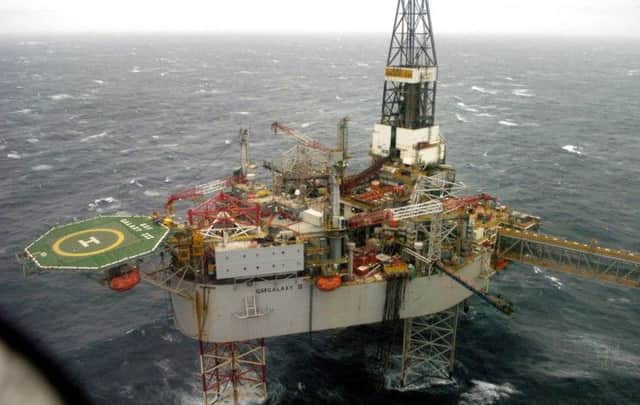Overweight workers could cost offshore industry


Legal experts have warned that attempts to have obese people officially classed as disabled could have major implications for companies.
From April 2015, helicopters will have new windows which personnel will have to be able to demonstrate they can fit through in the event of ditching.
Advertisement
Hide AdAdvertisement
Hide AdSome reports had claimed that overweight oil workers could be prevented from working if they cannot fit though, but the new ruling may now place the onus on firms to make the necessary changes.
The potential change stems from the case of Karsten Kaltoft, a 25-stone childminder from Denmark who was sacked by a local authority.
Niilo Jaaskinen, the EU’s advocate-general, has issued a preliminary ruling which states that severely obese people could be considered as disabled.
Although the case is still ongoing, the opinion could be backed by Europe’s Court of Justice and have far-reaching implications for all employers of overweight staff.
Jake Molloy, offshore regional organiser for the RMT union in Aberdeen, said: “This ruling relates to extremely obese people. [Offshore] workers have to meet a certain fitness standard because we work in a major accident hazard industry. It becomes a fitness issue.”
Oil firm have introduced a wide range of measures to deal with the growing problem of workers’ waistlines.
As a result, fewer passengers are being carried on helicopters to compensate for heavier personnel while some companies have also drafted in healthcare experts to help workers lose weight.
Mr Molloy added: “You get a lot of big guys in the industry but they are fit. If you are obese and considered disabled, it is regrettable but quite an obvious fact – you are not going to be working offshore.”
Advertisement
Hide AdAdvertisement
Hide AdUmbrella group Oil and Gas UK said it was taking steps to prepare for any European ruling, expected by the end of the year.
Obesity is already being
tackled by industry leaders working on a raft of new measures introduced by the Civil Aviation Authority earlier this year.
The flight regulator announced that a size limit will be in place from next April to make sure that all passengers fit through push-out helicopter windows.
The court will consider the Kaltoft case over the next few months.
An agreement by the court with the advocate general’s opinion would have significant repercussions on employers as they may be required to make special adjustments for morbidly obese employees, lawyers said.
However, Richie Alder, an employment lawyer at Trowers & Hamlins, said: “Obesity will not automatically trigger a duty on the part of employers to have to consider making reasonable adjustment to accommodate obese employees in the workplace.”